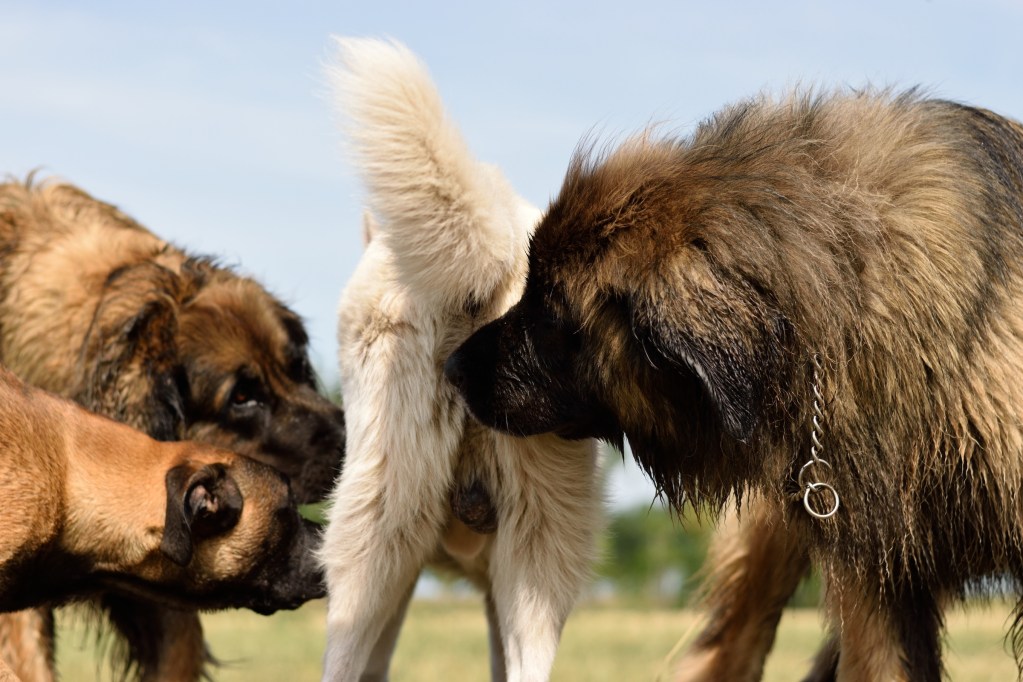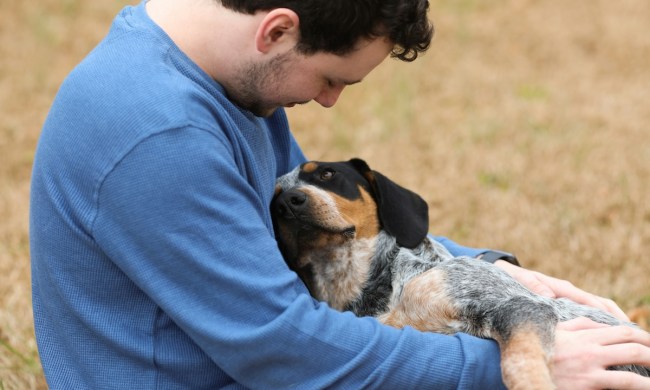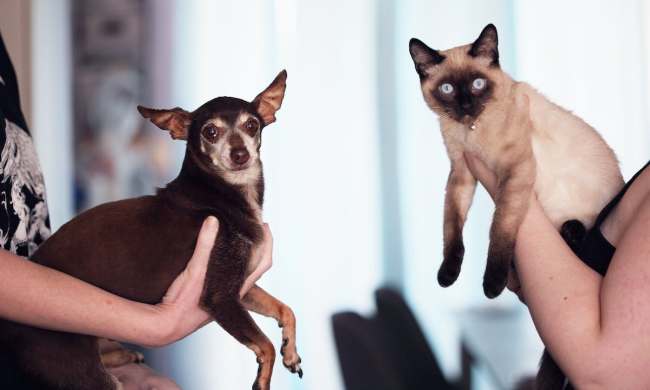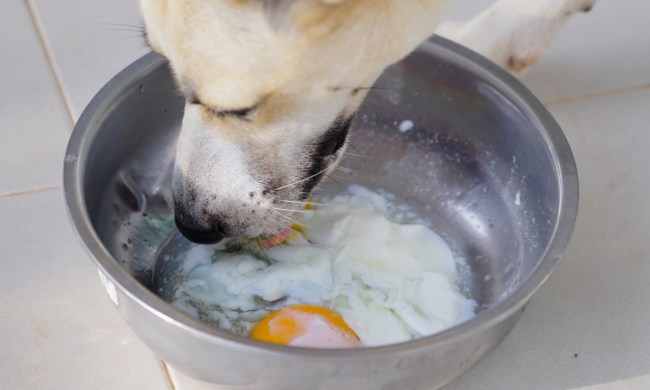We all pass gas, even our beloved pets. If you hear a toot and glance over at an innocent smiling face looking up at you, you’ll know who was responsible. Farting is a normal part of the mammalian experience and almost all of us do it (the sloth being a notable exception).
While your dog will almost certainly let one out now and then, excessive flatulence should raise the alarm. It could come from diet, a health condition, or even eating habits, but you’ll want to get a handle on the stinky issue. So, if you’re asking, “Why does my dog fart so much?” We’ll break it down for you.
Why is my dog farting more than usual?

As mentioned at the top, the culprit could be a few different things. You’ll need to narrow it down, possibly with help from your vet, to get the smelly byproduct to dissipate.
It could be about their diet
This is definitely the most common reason and generally an easy fix. Sometimes dogs have an allergy that makes them unable to eat certain foods. It can take time to narrow down the unfriendly ingredients, as a lot goes into your pet’s kibble. It’s estimated that about 1% to 2% of dogs have food intolerances. While not a large number, it means about 1 in 100 Fidos have this problem. Switching food or doing an elimination diet could permanently solve your beastie’s gas issues.
They might eat too quickly
Does your canine wolf down their dinner every night? In the process, they might swallow some air and upset their stomach. This extra wind has to go somewhere, and that will be out of their rear end (or as a burp). Not chewing food can also hinder digestion, leading to extra farts as well.
Some medical conditions cause flatulence
Usually the answer stems from the first two options, but once those have been ruled out, you should look into an underlying health issue. If the gas accompanies diarrhea, consider that they could have a stomach problem like irritable bowel syndrome or inflammatory bowel disease. Alternatively, this may signal something contagious, like a parasite or bacterial infection (both of which your vet will cure with medicine). Lastly, rarely extreme levels of farting can come from something more serious, such as pancreatitis or cancer. Most likely, though, you would see other symptoms and that’s not usually going to be the cause.
Why is my dog having a sudden increase in farts?

So far, we’ve focused on the more chronic farting, but what about when your pup pup fills up the room one evening but then it goes away? If the gas only lasts 24 hours, then you don’t need to panic or take your buddy to the doctor’s office.
Most likely, they got into something that didn’t agree with them, perhaps a dropped dessert outside on a walk or leftovers she found on the floor. Any time you switch foods, you expect to get some amount of indigestion, though if you move over slowly enough, hopefully, that doesn’t happen more than a little.
Tips for excessive farting

Of course, fixing the problem means finding it. But once you discover the root cause, you can try a few of these tips to cut down on the blasts.
Get your pup a slow feeder
It’ll be easy to tell if your pet has issues because they gobble down their meals. Many different dog bowls can help you slow them down and remind them to chew food properly.
Switch up their diet
Your vet may suggest an allergy-friendly or elimination diet to get to the bottom of, well, your pet’s bottom. Some brands specifically target dogs that need food that’s gentle on the tummy.
Cut out human foods
It’s so tempting to slip our buddies a little snack at the dinner table, but human foods can lead to a “fartrocious” animal. When gas occurs, cut down on treats of all kinds.
Make all changes slowly
Don’t swap food, treats, or even probiotics all at once, as a sudden disruption may trigger a bout of tooting. Instead, mix old and new until they fully accept their new eating program.
From time to time, you will smell your little guy’s puffs and it’s natural and unconcerning. If this becomes a frequent occurrence, you should probably dive in to discover what’s causing the bouquet. Usually, it’ll be nothing to worry about, though occasionally it could indicate a bigger issue, like a digestive problem. Once you get their diet under control, hopefully the nightly aroma will waft away.




